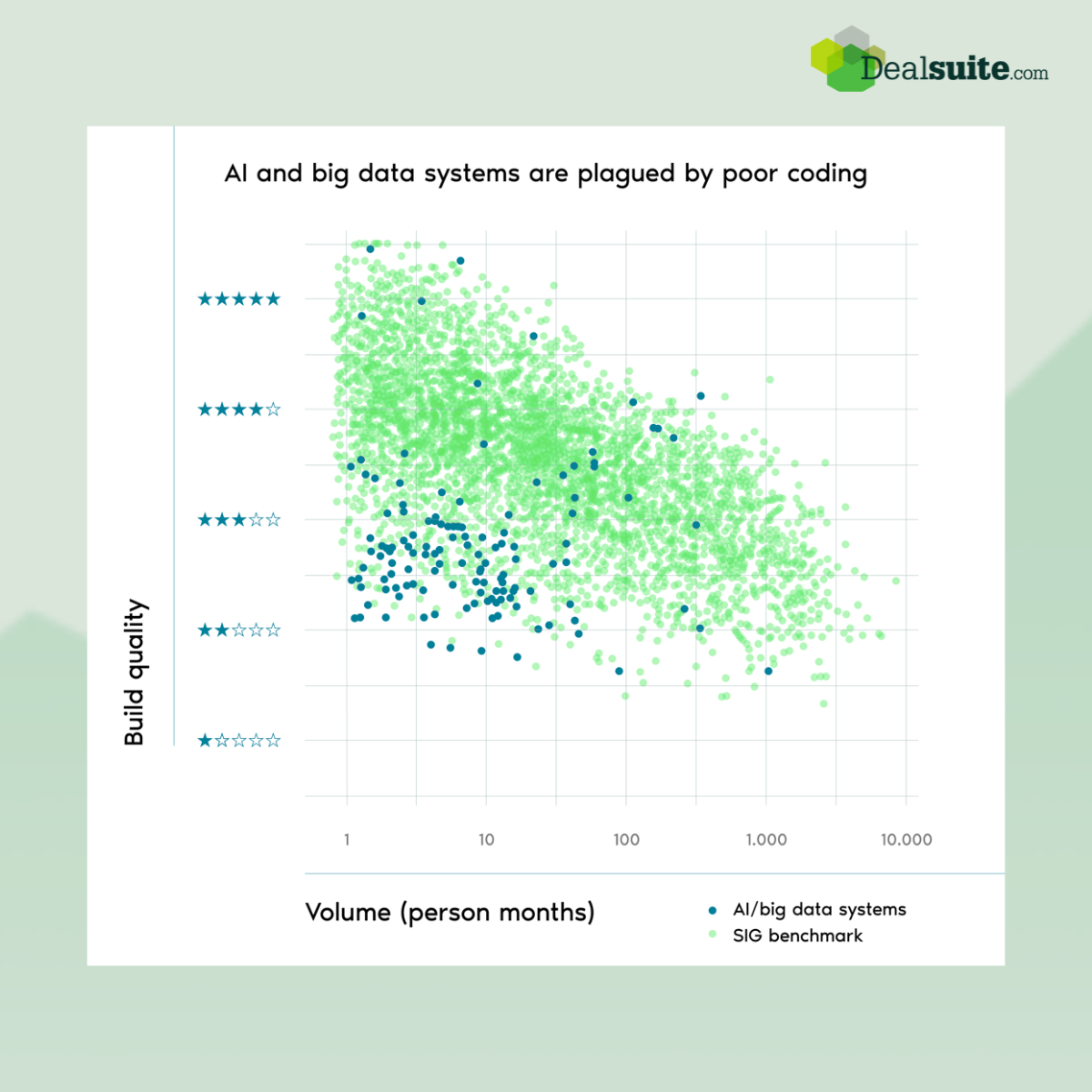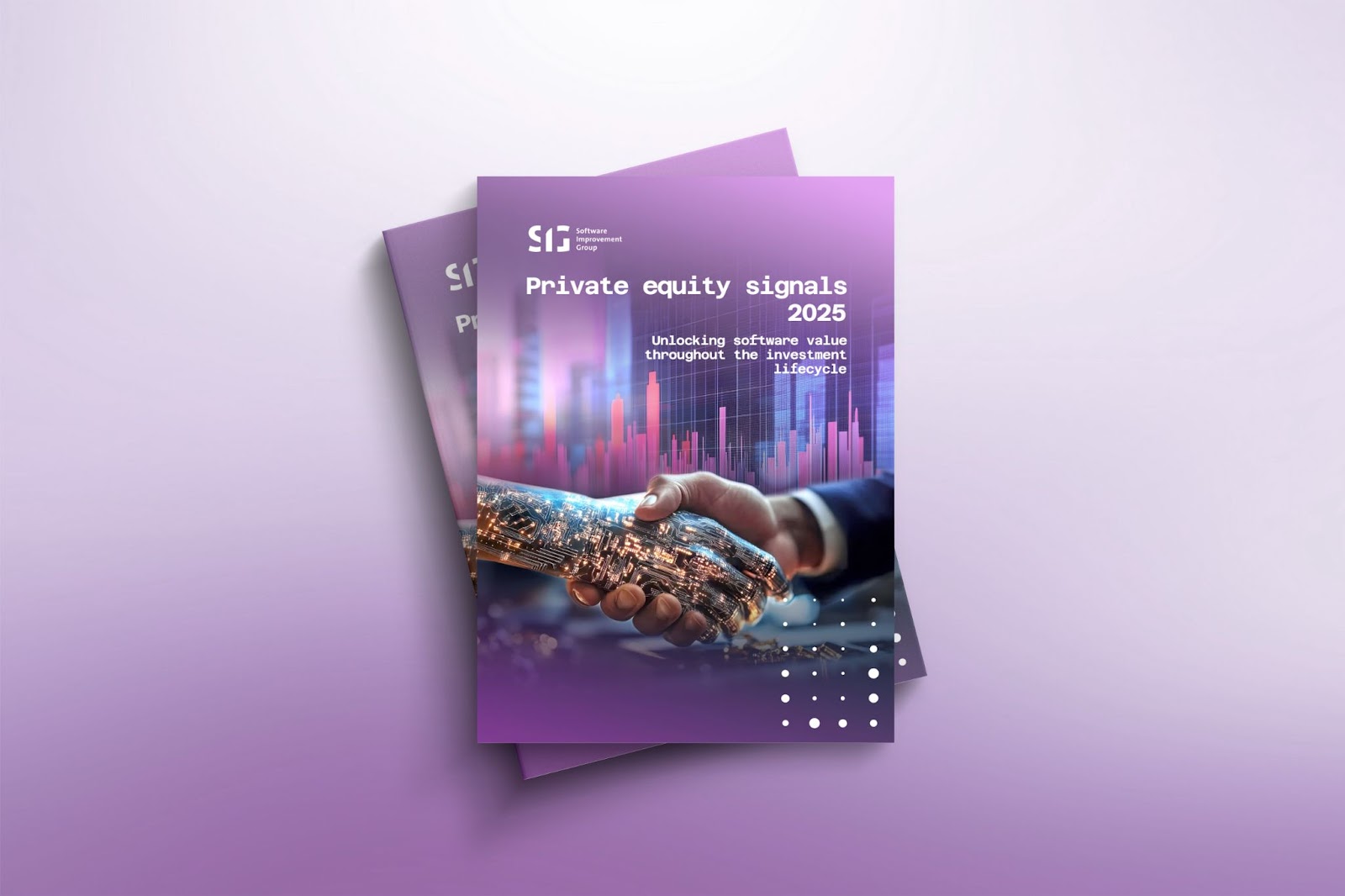|

AI has become a defining feature in technology-driven private equity deals. Just ten years ago, few companies used AI in core products. Today, over a third of pitch decks reference machine learning or predictive intelligence. For investors, this presents a powerful opportunity — but only if they can distinguish between genuine innovation and empty claims.
Recent events have highlighted the need for greater scrutiny. In 2024, the U.S. SEC charged two firms with misleading investors about their use of AI. And in 2025, Builder.ai was reported to have faked business deals to inflate its value (Bloomberg, 2025).
These incidents aren’t reasons to shy away from AI — they’re reminders that smart capital requires smart validation. With the right technical due diligence, PE firms can go beyond the pitch and evaluate what truly works, scales, and creates value.
Traditional IT diligence methods — interviews, demos, and documentation — rarely provide a full picture of how software actually performs under the hood.
Software Improvement Group (SIG) data reveals a key blind spot: 73% of AI and big data systems fail to meet basic build quality benchmarks.

These systems are often:
These risks don’t just impact integration — they can suppress long-term growth potential.
AI is no longer just a buzzword. It’s becoming a core factor in deal sourcing, value creation, and exit strategy:
That’s where Software Improvement Group (SIG) comes in. With 25+ years of software analysis, they enhance traditional diligence by validating what’s real — and revealing untapped opportunities for value creation.
Here’s how SIG protects PE firms from costly AI surprises:
Visionary roadmaps and polished demos might open doors — but lasting value comes from robust, scalable, and maintainable technology foundations.
Download the full Private Equity Signals 2025 report by SIG for actionable insights on AI risk, tech due diligence, and operational resilience.

.png)
.png)